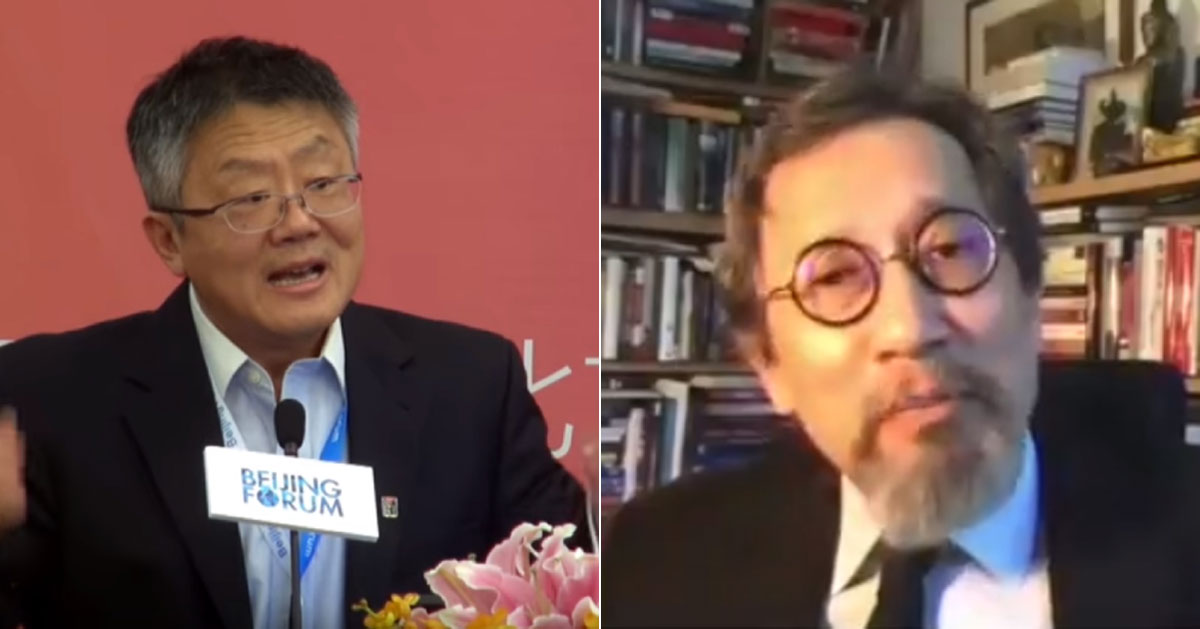Huang Jing, the Chinese-American academic thrown out of Singapore in 2017 after he was identified as an agent of influence of a foreign country, has denied recruiting Singaporean Dickson Yeo Jun Wei to spy for Beijing, South China Morning Post reported.
Huang, a former professor at the National University of Singapore’s Lee Kuan Yew School of Public Policy, shot back at an accusation levelled against him by retired Singaporean diplomat Bilahari Kausikan.
Bilahari's comments, made on Facebook, were picked up by Singapore media.
The former permanent secretary of Singapore’s Foreign Ministry claimed that Huang was the doctoral supervisor of Yeo's work at LKYSPP.
Bilahari also said it was “not unreasonable to assume” that Yeo had been recruited or at least talent spotted by China’s Ministry of State Security while at the school.
Yeo pleaded guilty in a United States court on July 24 to providing information to Chinese intelligence and recruiting others to do the same.
Retract or prove
In response to SCMP queries, Huang said that Bilahari's claims that he was the Chinese “agent” who had recruited Yeo to spy for Beijing were “nonsense” and “unreasonable”.
Huang also demanded Bilahari retract the claims or prove them.
“Singapore is a country known for its rule of law, what proof does he have? I knew Bilahari when I was in Singapore and have no grudges against him. His comments against me are nonsense and unreasonable,” Huang told SCMP.
Huang also retorted Bilahari's assertion that "it is not unreasonable to assume" that Huang had introduced Yeo to Chinese intelligence.
Huang said: "What does he mean by that? How can a diplomat say that?”
“He should either provide evidence or retract his comments. He owes me an explanation.”
In response to Huang's comments, Bilahari replied: “What else would he, can he, say? I cannot take such statements seriously.”
Bilahari has earlier responded to Mothership's queries that while he did not know for sure that Yeo was recruited by Huang Jing, he "find it difficult to believe that it was a pure coincidence" that Huang was Yeo's doctoral supervisor.
Bilahari added that he did not believe in pure coincidences such as this.
Huang said he was introduced to Yeo by academics
Huang also explained how he ended up as Yeo's supervisor.
Huang said it was not uncommon for PhD students to have a few supervisors, and he was brought on board partly because one of Yeo’s areas of research revolved around the foreign policies of small countries.
“So short were my interactions with him that I didn’t even know his Chinese name. I only know him as Dickson Yeo,” Huang said.
And of all the students he supervised at the policy school, Huang said he had experienced the least amount of interaction with Yeo.
Among the six PhD students under Huang's supervision, Dickson was the worst performer, the academic also offered.
But Huang said he had written a recommendation letter when Yeo wanted to study in the U.S.
“But overall, Yeo had not written a single paper or handed in any assignment to me. He did not attend any of my classes, my interactions with him are limited,” Huang said.
Asked if it was common for China to use overseas students for intelligence gathering in a foreign country, Huang said he was not familiar with such practices.
“If you ask me about my area of specialisation I can tell you at length. But this is not something that I know. Nor do I have any insider knowledge,” Huang said.
Huang tried clearing his name previously
Huang is an American citizen.
After his stint in Singapore, he said he had spent a year in Washington DC in an effort to clear his reputation.
He told SCMP previously: "I worked the whole year in Washington DC, my home, to show that I am not what Singapore implied I am. Right now, Singapore has not clarified which foreign country I work with so I wanted to show that at least the US doesn’t think I am working for whoever."
He is now a professor and dean at the Beijing Language and Culture University’s Institute of National and Regional Studies.
Top image via Korea Foundation for Advanced Studies & IPS LKYSPP
If you like what you read, follow us on Facebook, Instagram, Twitter and Telegram to get the latest updates.
